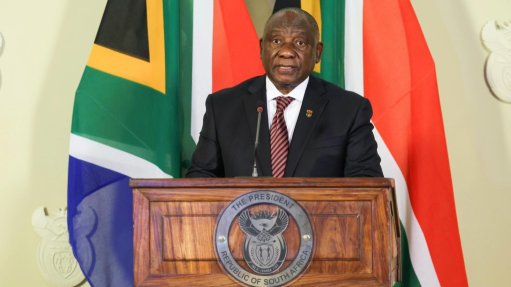UK-Rwanda refugee plan sinks
Rishi Sunak’s tenure as UK Prime Minister has clocked out, following his Conservative Party’s electoral drubbing earlier this month. Also consigned to the dustbin of history is his government’s plan to deport thousands of asylum seekers who braved the English Channel to land on British shores all the way to Rwanda.
The demise of the deportation plan was sealed when the new Prime Minister, Labour Party leader Keir Starmer, bluntly dismissed it during his first news conference, characterising it as “dead and buried before it started” and condemning it as a mere gimmick.
The scheme aimed to deter small-boat crossings in the English Channel by sending some people who arrive in the UK illegally to Rwanda. Their asylum claims would be processed in the East African country and, if successful, they would be granted refugee status there. If not, they could apply to settle in Rwanda on other grounds or seek asylum in a safe third country.
First announced in April 2022, the plan suffered a setback in November 2023, when the UK Supreme Court declared it unlawful, citing concerns that Rwanda is not a safe destination for asylum seekers. In response to this judgment, the UK government signed a new treaty with Rwanda incorporating additional safeguards and introduced new legislation declaring Rwanda safe for asylum seekers.
Had the Conservatives triumphed in this year’s election, the first flights would have left by the middle of this month.
According to UK media reports, when the legislation paving the way for the deportations was approved in April this year, there were about 52 000 asylum seekers who could potentially be targeted for relocation.
For Rwanda, the deal was poised to be a significant financial opportunity, although its government has refuted its characterisation as a mere cash cow. It stipulates that, if more than 300 people were sent to the African country, the UK would pay a one-off sum of £120- million to help boost the Rwandan economy, with further payments of £20 000 for each individual relocated. The UK has reportedly already paid £240-million as part of this arrangement.
These sums pale into insignificance when compared with the £4-billion that the UK asylum system drains from national coffers each year – an amount that includes about £8- million daily in hotel accommodation. It’s little wonder then that the Conservatives were eager to float their boat-deterrence scheme amid such costly currents.
But the selection of Rwanda as the country to which the UK sought to send asylum seekers left many people scratching their heads in disbelief. This is a country with an awful human rights record. Those of us in Mzansi know all too well of the stories of Rwandan opposition figures meeting untimely ends at the hands of Rwandan secret agents, simply for daring to oppose Paul Kagame’s iron grip on power.
Although he has performed miracles on the economic front, Kagame is a despot who doesn’t allow free and fair elections and appears poised to remain as Rwanda’s President until 2034.
The Rwandan government has also been instrumental in creating new refugee populations by fomenting war in the neghbouring Democratic Republic of Congo. Why would the UK want to cut a deal with such a partner?
Then there is the small matter of Rwanda’s track record as the recipient of unwanted asylum seekers from other countries. From 2014 to 2017, Israel sent about 4 000 asylum seekers to Rwanda and Uganda, its East African neighbour, under a “voluntary departure scheme”. The UK’s The Guardian newspaper reported in 2022 that almost all of them were believed to have left Rwanda immediately, with many attempting to make their way to Europe through people-smuggling routes.
At least one deportee still in Rwanda, who was tracked down by Israel’s Haaretz newspaper in 2018, spoke of being destitute and living rough on the streets of Kigali, the capital city.
Thankfully, Rwandans can rest assured that their vibrant tourism industry won’t be upstaged by any English Channel arrivals. Their country’s renowned gorillas will continue to be the main attraction, untouched by the complexities of international migration policy.
Article Enquiry
Email Article
Save Article
Feedback
To advertise email advertising@creamermedia.co.za or click here
Announcements
What's On
Subscribe to improve your user experience...
Option 1 (equivalent of R125 a month):
Receive a weekly copy of Creamer Media's Engineering News & Mining Weekly magazine
(print copy for those in South Africa and e-magazine for those outside of South Africa)
Receive daily email newsletters
Access to full search results
Access archive of magazine back copies
Access to Projects in Progress
Access to ONE Research Report of your choice in PDF format
Option 2 (equivalent of R375 a month):
All benefits from Option 1
PLUS
Access to Creamer Media's Research Channel Africa for ALL Research Reports, in PDF format, on various industrial and mining sectors
including Electricity; Water; Energy Transition; Hydrogen; Roads, Rail and Ports; Coal; Gold; Platinum; Battery Metals; etc.
Already a subscriber?
Forgotten your password?
Receive weekly copy of Creamer Media's Engineering News & Mining Weekly magazine (print copy for those in South Africa and e-magazine for those outside of South Africa)
➕
Recieve daily email newsletters
➕
Access to full search results
➕
Access archive of magazine back copies
➕
Access to Projects in Progress
➕
Access to ONE Research Report of your choice in PDF format
RESEARCH CHANNEL AFRICA
R4500 (equivalent of R375 a month)
SUBSCRIBEAll benefits from Option 1
➕
Access to Creamer Media's Research Channel Africa for ALL Research Reports on various industrial and mining sectors, in PDF format, including on:
Electricity
➕
Water
➕
Energy Transition
➕
Hydrogen
➕
Roads, Rail and Ports
➕
Coal
➕
Gold
➕
Platinum
➕
Battery Metals
➕
etc.
Receive all benefits from Option 1 or Option 2 delivered to numerous people at your company
➕
Multiple User names and Passwords for simultaneous log-ins
➕
Intranet integration access to all in your organisation

















